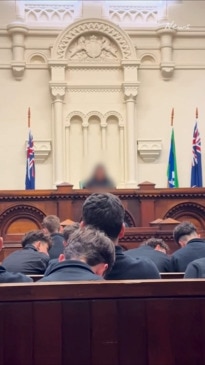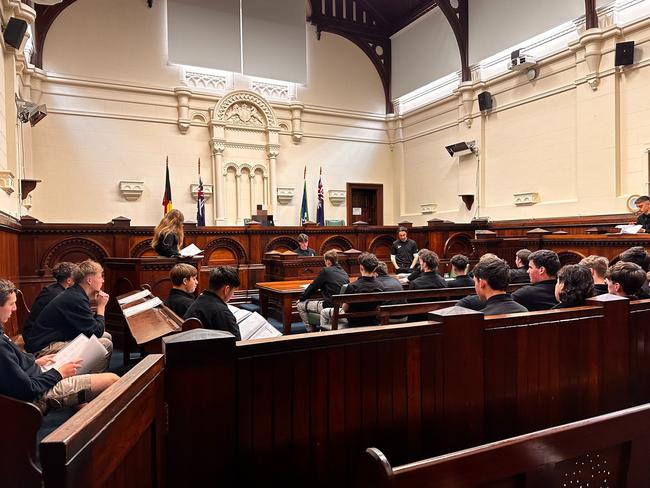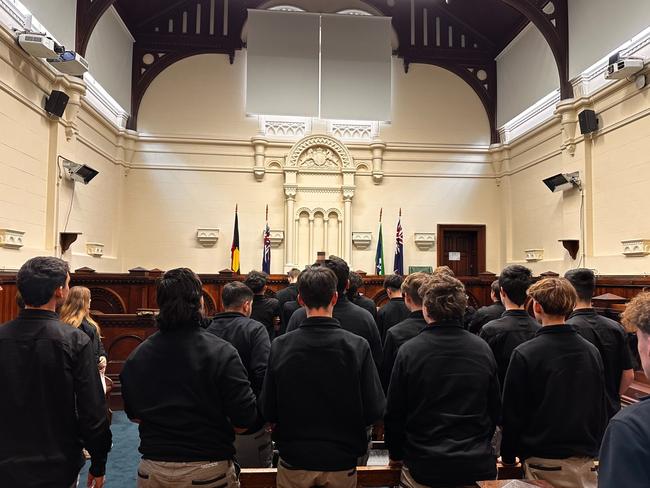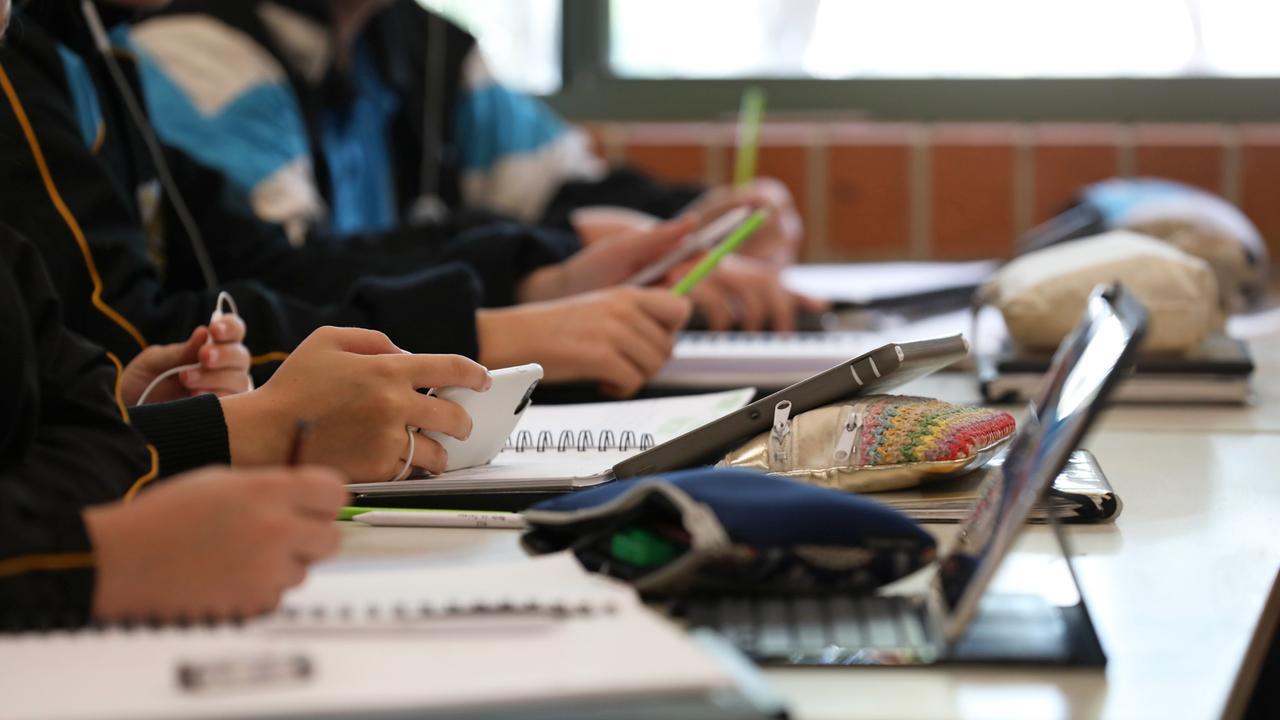Students spend time in court to understand the consequences of sexting
After a day in court, teens have vowed to think twice about sharing explicit photos on social media, amid a shocking spike in misogynism and gender-based violence at Victorian schools.

Education
Don't miss out on the headlines from Education. Followed categories will be added to My News.
A mock court trial that teaches teenagers about the consequences of sharing and possessing explicit photos of minors, could be the solution to curbing image-based abuse in schools following a rise in misogynistic behaviour.
Year 10 students from Harvester Technical College vowed to think twice before sharing photos on social media, after experiencing the National Trust’s Respect Me program at the Old Melbourne Gaol last week.
The initiative – set in the former Melbourne Magistrates’ Court – educated students on the repercussions of sexting through a pretend plea hearing based on a story about a 16-year-old boy who was charged for sharing graphic photos of two girls.
Students adopted one of 13 roles – including the magistrate, defendant and the victim’s family – with each character educating them on how the distribution of explicit content online implicated the defendant and other individuals.

Program facilitator Troy Larkin said the hearing “illuminated how easy it could be to commit a crime without realising”.
“The Respect Me program highlights how seemingly benign behaviour can have extraordinarily awful consequences,” he said.
“(These trials) are very real. There are young people in Victorian and Australian courts today with charges that are similar if not identical to the charges laid out in this program.”
According to the seventh national survey of secondary students and sexual health, 86 per cent of teens aged 14 to 18 reported receiving sexual messages or images while 70 per cent reported sending explicit content.
National Trust of Australia education and public programs manager Nicola Dziadkiewicz said the program brought “gravitas to the very serious issue” of image-based abuse, also known as revenge porn.
The program was developed in partnership with Gippsland Legal Service following consultation from Victoria Police.
Harvester Technical College student Maya Holowka, who played the victim’s best friend, said the most “shocking” fact she learned was “you can go on the sex offenders register no matter your age”.
Classmate Frank Zappia said the session taught his cohort how “respecting women and doing the right thing in the eyes of the law was a better option”.
“If it was a mate or myself in the situation, I would go to the police, I would explain what happened and try to seek justice as much as I could,” he said.

Year 10 teacher at the tech school, Robert Coghill, said he saw a positive change in students’ attitudes towards sexting after completing the program.
“Many families may not talk to their children about issues such as sexting or online safety because they don’t see how much technology’s presence has changed over time,” he said.
“Educating young people on the risks involved and contextualising it at least gives students a choice before they make a potentially life-changing decision.”
The program is relevant now more than ever following a spike in misogynistic behaviour and gender-based violence at Victorian schools this year.
Last month, two Yarra Valley Grammar students were expelled after a spreadsheet emerged that ranked their female classmates based on their appearance using labels from “wifey” to “unrapeable”.
Over a week later, Victoria Police responded to an incident at McClelland College after they were made aware of an offensive list that rated female students.
Man Cave chief executive Hunter Johnson said programs that don’t shame male students enables them to “to express their emotions, develop empathy and leave more open to being supportive” to the girls and women in their lives.




